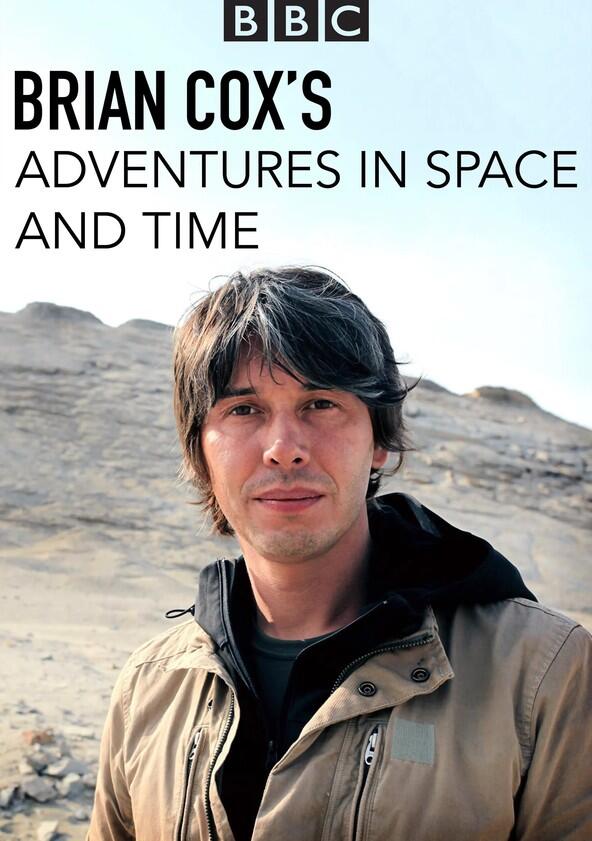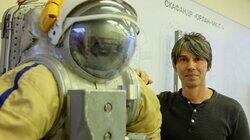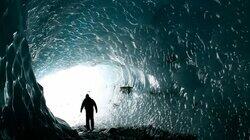Brian Cox's Adventures in Space and Time - Season 1

Season 1

Episodes

Space: How Far Can We Go?
Brian believes we are at the start of a new age of space travel, where space flight is on the verge of becoming routine. In this episode, he explores the latest science and takes a new look at his old films and asks: how far can we go in our exploration of the cosmos?
Brian begins in Russia's cosmonaut training facility in the outskirts of Moscow, where he dons a spacesuit to discover what 'the right stuff' is and what it might take to carry out maintenance on the International Space Station in low earth orbit. It is an eye-opening experience that reveals just how physically demanding being an astronaut can be.
He then looks at some of the most extraordinary achievements of space exploration to date. Under the clear sky of the Atlas Mountains, he tells the story of how we started to explore the cosmos from earth. Careful observation of 'wandering stars', now known as the planets, initially led our ancestors to believe that Earth, not the sun, was at the center of our solar system. But as our knowledge of the cosmos grew, so did our appetite to explore; eventually technology made it possible for us to take our first steps towards the stars. In Russia's Star City, Brian visits the office of Yuri Gagarin, the first man in space. At Cape Kennedy Space Center he marvels at the enormous Saturn V rocket that launched the first men to the moon. Brian reflects on the difficulties of filming this giant machine, and on his encounters with the extraordinary men who flew in it to the moon.
Looking to the future, Brian recalls his meeting with aerospace engineer and visionary advocate of Mars exploration Robert Zubrin. He's credited with inspiring Elon Musk and Jeff Bezos to develop rockets with the aim of making the red planet the next frontier of human space exploration.
Professor Cox concludes that Mars will be the limit of human space exploration in our lifetime – our bodies can't withstand the demands of traveling much deeper into the cosmos. To explore further, we must send robots in our place. Brian reveals some of his favorite probes to have uncovered the wonders of our solar system. This includes Voyager 1, whose iconic image of Earth from deep space taught us the true value of exploration: perspective.

Aliens: Are We Alone?
Brian Cox looks at our attempts to answer one of the most profound questions we can ask – are we alone in the universe? With scientists sending space probes to the furthest reaches of our solar system and beyond, the scientific search for alien life has begun.
Inspired by a childhood love of science fiction, Brian still hopes to hear from ET. In this film, he explains why this search deserves to be taken seriously, and he explores the chances of it happening.

What Is Gravity?
Brian takes a fresh look at the concept of gravity, revealing it to be far more than just the force that makes things fall to the ground. Recent scientific breakthroughs are challenging physicists' ideas of the very nature of reality.
He recalls some of his most iconic TV moments: being first on the scene to meet a space capsule returning three astronauts from the International Space Station; demonstrating how a bowling ball and feather fall at the same speed in the largest vacuum chamber in the world; filming in a prison wired up to explode; and standing on a majestic snowy mountain peak to explain the nature of spacetime.
Whilst revisiting his previous programmes, he takes us on a tour of gravity, explaining how Sir Isaac Newton devised a simple formula to describe gravity as a force that governs both how apples fall and how planets move in the heavens. He explores some of gravity's stranger features, explaining how this comparatively weak force becomes the most dominant in the universe when it comes to the celestial mechanics of the cosmos: sculpting our solar system and even destroying stars.
Using the world's largest vacuum chamber in NASA's Space Power Facility in Cleveland, Ohio, Brian demonstrates how gravity makes objects fall at the same rate, explaining how this led Einstein to his 'happiest thought' and the radical rethinking of the nature of space and time. Brian also explains how our contemporary study of one of gravity's strangest creations, black holes, is leading us to yet more revolutionary, and in his words 'bonkers', views of the universe we live in.

What Is Time?
Brian explores a simple question that is causing a big stir today: what is time? Modern science shows it to be far stranger than we think. He recalls some highlights from his TV series that touch upon different aspects of this physics conundrum: from a mindboggling encounter with Doctor Who, to breaking the sound barrier in a Eurofighter in order to see two sunsets in one day, to witnessing one of the oldest animal life cycles on earth on a remote beach in Costa Rica. He also explores Chankillo, the oldest and best-preserved astronomical observatory in the Americas.
Recently Updated Shows

The Creep Tapes
Based on a collection of videotapes in the secret vault of the world's deadliest and most socially uncomfortable serial killer, who hires his victims to film him for the day under false pretenses, each episode exposes a new victim from one of the fabled 'Creep Tapes'.

America's Funniest Home Videos
ABC's longest-running primetime entertainment show, America's Funniest Home Videos, returns for season 36 this fall with the same mission -- giving families something genuinely funny to enjoy together on Sunday nights.
"AFV," the longest-running primetime entertainment show in ABC history, returns for season 36 with the same mission - to provide viewers with hysterical moments that fly by at a dizzying pace.

The Real Housewives of Potomac
Just up the river from our nation's capital lies a hidden gem—Potomac, Maryland. Its rolling hills, gated mansions, sophisticated prep schools, and exclusive country clubs all serve to keep the area invitation-only. Sprinkled throughout this community are a handful of old-line, wealthy African-American families who have historically broken racial barriers to provide a life of privilege for their children. The Real Housewives of Potomac follows the upscale lives of six intriguing, well-to-do women: Gizelle Bryant, Katie Rost, Karen Huger, Charrisse Jackson-Jordan, Robyn Dixon, and Ashley Darby, all of whom have fought for their places in this society by way of legacy or marriage. In a town where entry is granted only through class, pedigree, and lineage, how far will these ladies go to secure their spot at the top of this prestigious circle?

The Traitors Canada
Follow a group of contestants – including some familiar faces – who live together as they complete a series of challenges with the goal of earning a cash prize. The catch? Some of the contestants are traitors who will attempt to deceive and manipulate their way to the prize instead of sharing it amongst the group. In this psychological adventure will the traitors be unmasked in time?
